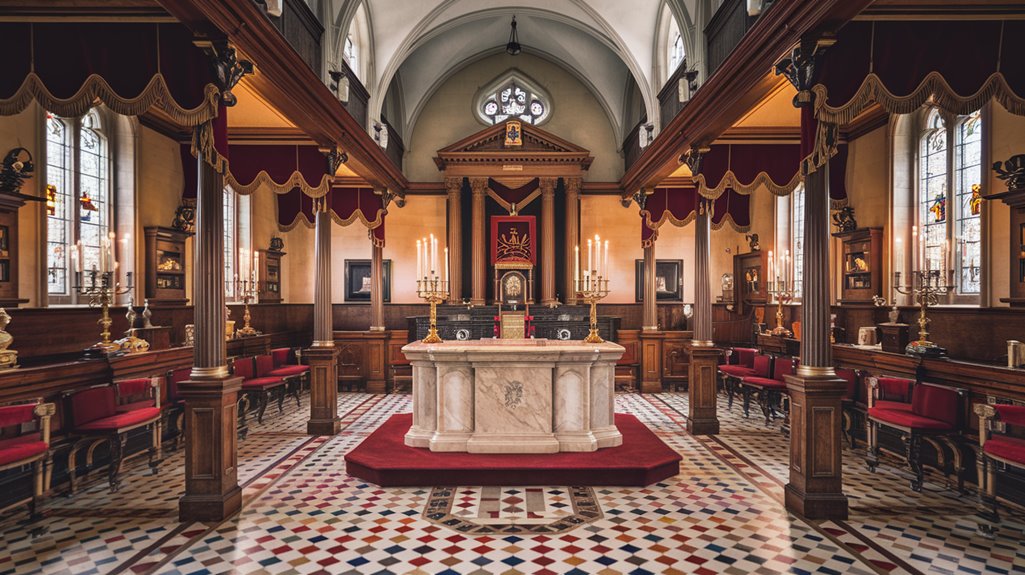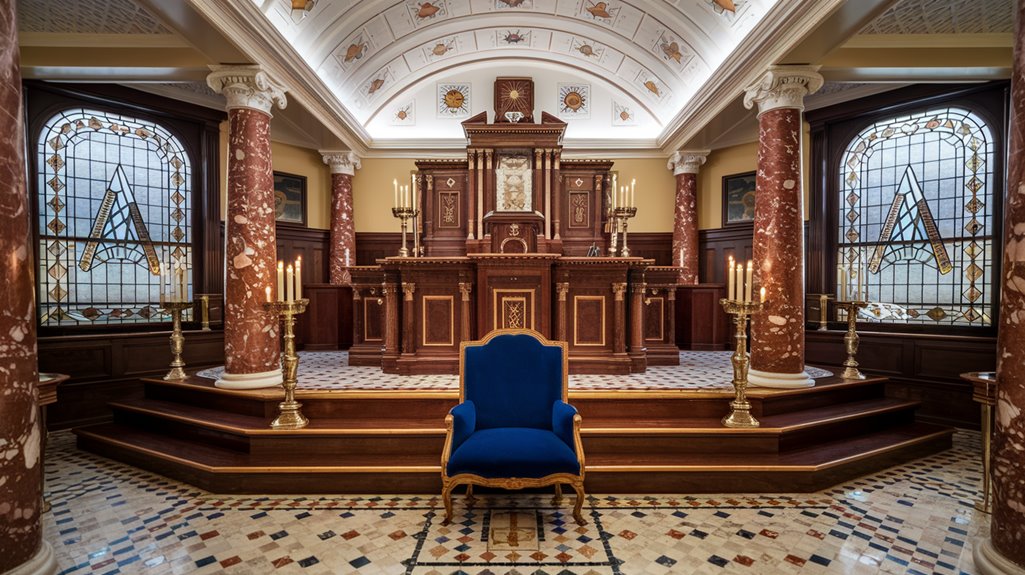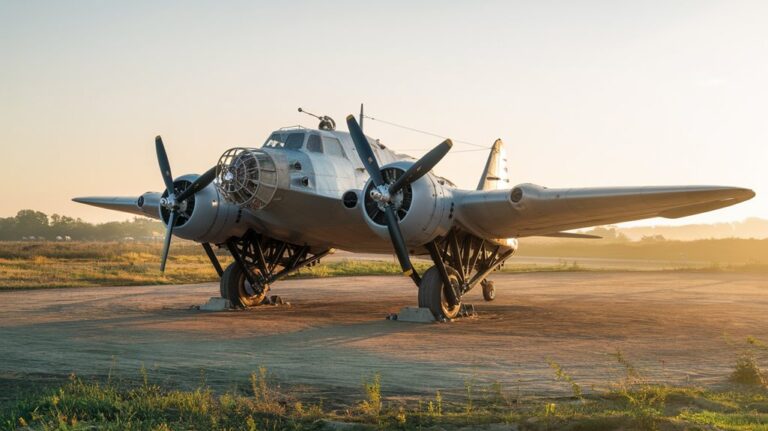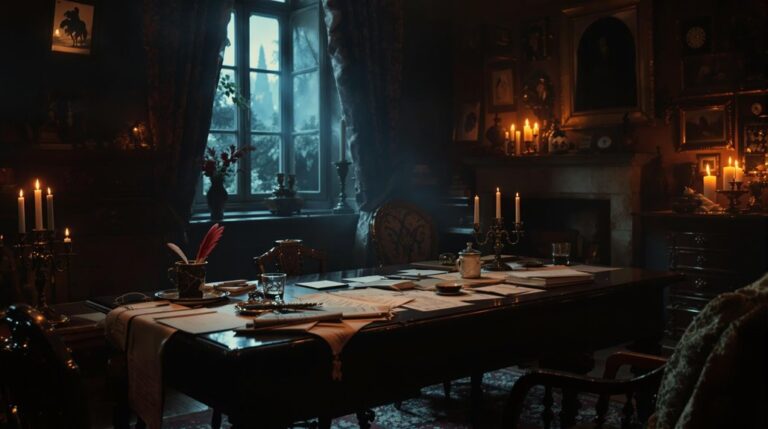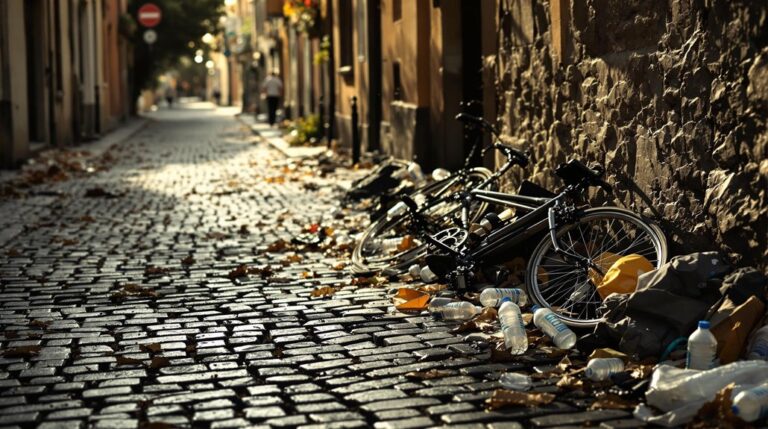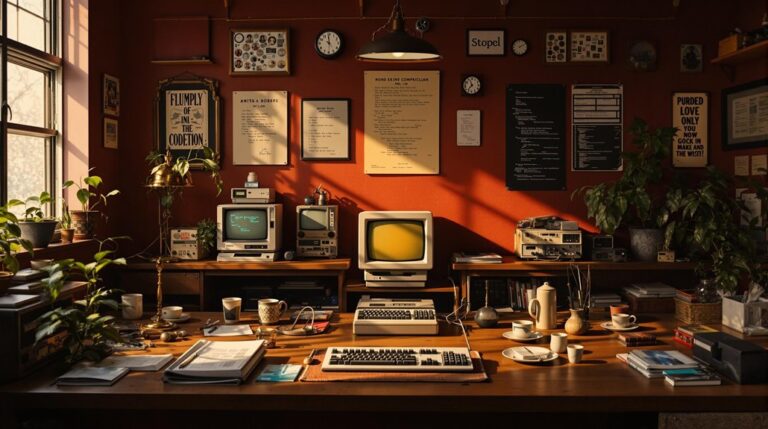Freemasons Unveiled: Inside the World’s Most Famous Secret Society
While you might think Freemasonry's secrecy makes it impossible to understand, you'll find that many aspects of this centuries-old brotherhood are actually well-documented and fascinating. As one of history's most influential societies, it's shaped everything from America's founding principles to modern charitable organizations. Whether you're curious about the ancient rituals, famous members, or real-world impact, there's much more to this "secret" society than mysterious handshakes and ceremonial aprons.
The Origins and Evolution of Masonic Traditions
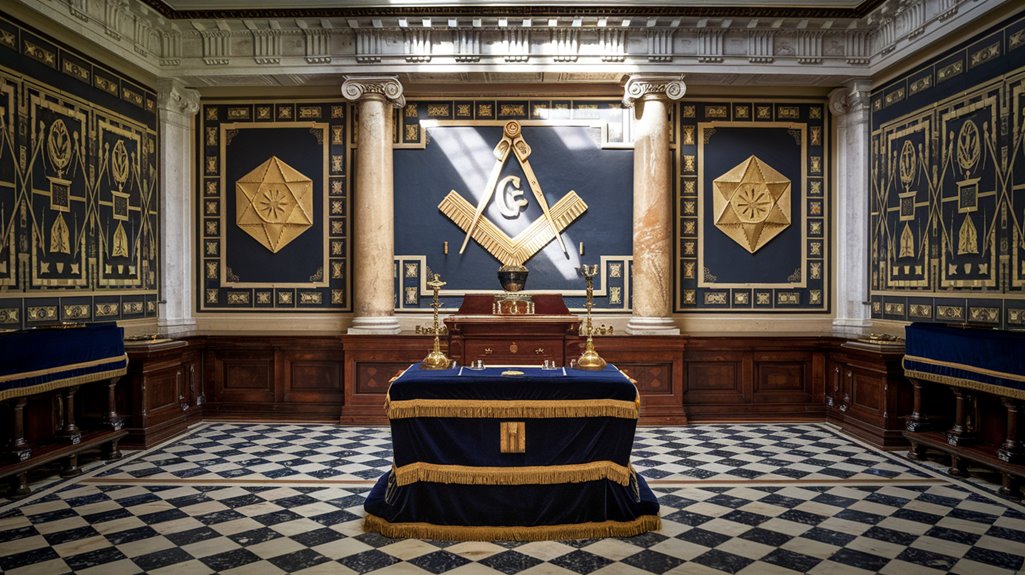
While many associate Freemasonry with secrecy and mysticism, its roots trace back to medieval stonemasons who built Europe's grand cathedrals and castles.
These skilled craftsmen developed secret handshakes, passwords, and symbols to protect their trade secrets and verify legitimate workers.
The term "Freemason" likely refers to their work with freestone or their status as free laborers.
The first significant step toward modern Freemasonry occurred when non-operative members began joining masonic lodges in the early 1600s.
A pivotal moment in Masonic history came in 1717 when the first grand lodge was established in London.
Behind Closed Doors: Rituals and Ceremonies
Although shrouded in mystery, Masonic rituals serve as the cornerstone of Freemasonry's teachings and traditions. You'll find these ancient ceremonies carefully designed to transform candidates through symbolic journeys of self-discovery and moral enlightenment.
During initiation symbolism, you'll witness candidates partially disrobe, don blindfolds, and relinquish metallic possessions, marking their shift from the outside world into sacred brotherhood. A mentor guides them through each step, ensuring they grasp the profound meanings behind these age-old practices. These ceremonies have been meticulously preserved as secrets passed down through generations. Members progress through three distinct degrees as they advance in their Masonic journey.
While most ceremonies remain private, you can observe some Masonic traditions through public ceremonies. During cornerstone layings, you'll see members use ancient tools to position stones, consecrating them with corn, wine, and oil.
They also conduct funeral services, offering a glimpse into their fraternal bonds and reverence for life's passages.
Myths vs. Reality: What Freemasons Actually Do
Despite popular misconceptions, Freemasons primarily focus on community service and self-improvement rather than secret ceremonies.
You'll find most lodges actively engaged in community outreach, with 93% supporting local youth programs and 32% funding student scholarships. The organization's commitment to charitable events extends beyond local efforts through partnerships with organizations like the British Red Cross and Scout Association. Founded in 2001, the Teddies For Loving Care initiative has provided comfort to millions of hospitalized children. The Shriners, a Masonic organization, operate 22 children's hospitals providing free medical care.
In your daily life as a Mason, you're encouraged to pray, learn something new, and practice gratitude – all part of the organization's emphasis on personal growth.
While some think Freemasonry is a secret society or religion, it's actually a private organization that openly shares its charitable work.
Through the Masonic Charitable Foundation, you'll contribute to the £5.5 million distributed annually to help vulnerable individuals and support disaster recovery efforts.
Notable Freemasons Throughout History
Freemasonry's influence spans centuries through the remarkable achievements of its members.
You'll find famous Freemason politicians like George Washington and Winston Churchill, who shaped nations, alongside influential Freemason artists such as Mozart and Oscar Wilde, who transformed culture.
Some of history's greatest innovators were part of the fraternity – from Benjamin Franklin's groundbreaking experiments to Buzz Aldrin's lunar footprints.
Each era has seen Freemasons at the forefront of progress, whether it was Edward Jenner developing the smallpox vaccine or J. Edgar Hoover establishing the FBI.
McGee's academic research examines how conspiracy theories emerged around the organization's secretive practices and cultural influence.
The organization's reach extends into civil rights through figures like Booker T. Washington, entertainment through Harry Houdini, and literature through Sir Arthur Conan Doyle.
Despite their diverse backgrounds, members embraced the principle of formal equality within lodge meetings.
These members' diverse accomplishments reflect Freemasonry's profound impact on human advancement.
Modern Freemasonry: Brotherhood in the Digital Age
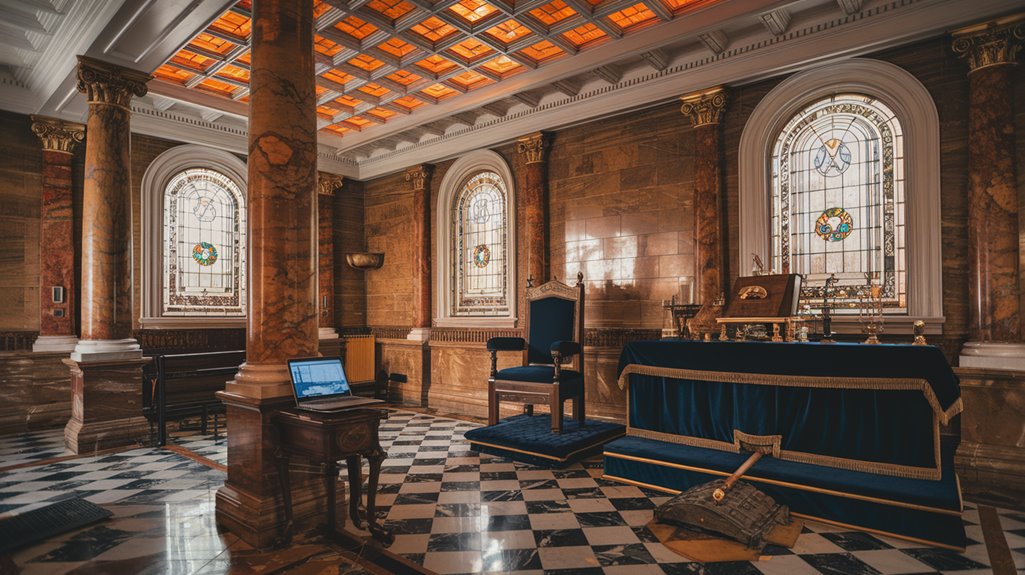
While centuries-old traditions remain at its core, modern Freemasonry has embraced the digital revolution to strengthen its brotherhood worldwide. Through decentralized structure and digital connectivity, Freemasons now engage with each other across borders and time zones, creating virtual spaces for gathering and collaboration. The organization maintains its dedication to moral character development while adapting to modern times.
You'll find today's Masonic community adapting to contemporary needs while preserving its fundamental values. Regular online monitoring helps ensure their digital platforms remain secure and compliant with hosting standards. The Official Digital Freemasonry Community (O.D.F.C.) exemplifies this evolution through:
- Global networking platforms connecting brothers worldwide
- Social media channels promoting transparency and dispelling myths
- Digital tools facilitating lodge management and communication
- Online resources supporting humanitarian initiatives
This technological transformation hasn't changed Freemasonry's core mission of personal growth and brotherhood. Instead, it's enhanced the organization's ability to fulfill its humanitarian pursuits and foster meaningful connections in our interconnected world.

